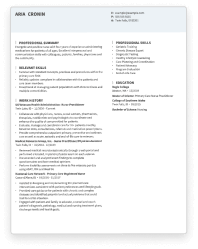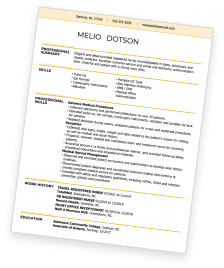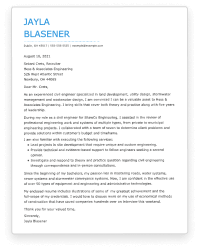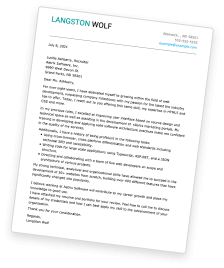Inventory Manager Resume: Overview
Inventory managers play an essential role in the efficiency and profitability of businesses across various sectors.
You are tasked with overseeing and optimizing inventory levels, ensuring that stock is maintained, organized, and accessible while minimizing costs and maximizing space.
Your responsibilities may span across diverse environments, including:
- Warehouses and Distribution Centers
- Retail Stores
- Manufacturing Plants
- Healthcare Facilities
- E-commerce Operations
Crafting an outstanding resume is a crucial step towards securing your next role as an inventory manager.
Our comprehensive collection of downloadable resume templates and impactful examples is designed to assist you in showcasing your expertise in inventory management, supply chain optimization, and logistical coordination.
Inventory Manager Resume: Choose A Format
The foundation of an effective inventory manager resume lies in selecting the right format.
This choice is pivotal as it frames how your qualifications are presented, ensuring they capture the attention of hiring managers in the best possible light.
Inventory managers have three primary resume formats to consider:
Chronological Resumes for Inventory Managers
The chronological resume format is the most traditional and widely recommended, particularly for those with a solid background in inventory management or related fields.
This format emphasizes your work history, listing your roles from most recent to oldest, with a focus on responsibilities and achievements relevant to inventory management.
In this format, each position should detail your job title, employer’s name, location, dates of employment, and significant accomplishments, using quantifiable metrics where possible to demonstrate your impact on inventory efficiency and cost reduction.
Chronological resumes are favored for their ATS compatibility, making it easier for your resume to advance during initial screenings.
Functional Resumes for Inventory Managers
Functional resumes highlight specific skills and competencies over chronological work history, making them a good choice for candidates transitioning into inventory management from other fields or those with gaps in their employment history.
This format allows you to focus on your inventory management skills, such as forecasting, procurement, supply chain optimization, and logistical coordination, even if they were gained in a different capacity or industry.
However, be aware that functional resumes may not fare as well with ATS systems and can be less persuasive to employers who prioritize direct experience.
Combination Resumes for Inventory Managers
Combination resumes blend elements of both chronological and functional formats, offering a comprehensive view of your skills followed by a detailed work history.
This format is especially useful for showcasing a robust set of inventory management skills alongside a progressive career trajectory.
An inventory manager opting for a combination resume can highlight both their expertise in specific inventory management practices and their practical application over time, providing a well-rounded picture of their qualifications.
Choosing a Format
Selecting the most appropriate resume format is a crucial step in your job application process.
While the chronological format is generally preferred for its clarity and ATS friendliness, the best choice ultimately depends on your unique career history and the specifics of the inventory manager role you’re targeting.
Consider how each format might best present your experience and skills in inventory management.
For individuals with a strong background in the field, a chronological or combination resume might best highlight your qualifications.
For those transitioning from a related role or re-entering the workforce, a functional resume could offer a strategic way to showcase relevant skills.
How To Write An Inventory Manager Resume
After deciding on the best format for your inventory manager resume, it’s time to outline and then write your resume.
Assembling it involves incorporating five essential sections, with the flexibility to add more if they enhance your candidacy for the inventory management position.
The core sections to include are:
- Contact Information
- Summary or Objective
- Work History
- Skills
- Education
Along with any additional relevant sections, each component is critical in demonstrating your qualifications for an inventory management position and positioning you for career advancement.
Contact Information
Your contact information should prominently feature your full name, phone number, professional email address, and your current location (city and state).
Additionally, you can include a LinkedIn profile or professional website/portfolio if it showcases relevant inventory management projects or achievements.
Place your contact information at the top of your resume, ensuring it’s immediately visible and legible.
While it should be noticeable, avoid overly decorative fonts or formats that could distract from the substance of your resume.
An example of contact information for an inventory manager might be:
Michael Rodriguez
Atlanta, GA
m.rodriguez@example.com
555-123-4567
Summary or Objective
Beneath your contact information, it’s strategic to include a profile section that succinctly presents who you are as a professional.
You can opt for either a resume summary or an objective, depending on your career stage and goals.
A resume summary provides a concise overview of your key achievements, skills, and career aspirations, making it ideal for those with a solid background in inventory management.
An effective inventory manager resume summary might read:
“Dedicated Inventory Manager with over 8 years of experience in optimizing supply chain operations for manufacturing and retail sectors. Demonstrated success in reducing costs by 30% through strategic inventory control and lean management practices. Expert in deploying advanced forecasting techniques and technology solutions to streamline operations and improve inventory accuracy. Committed to enhancing operational efficiency and profitability.”
A resume objective, on the other hand, is more focused on your career objectives and passion for the role, suitable for those transitioning into inventory management or seeking to leverage skills in a new context.
A compelling inventory manager resume objective could be:
“Dynamic professional with a strong background in logistics and supply chain analysis, aiming to leverage extensive problem-solving skills and analytical capabilities as an Inventory Manager. Seeking to apply expertise in inventory forecasting and procurement strategy to drive efficiency and cost reduction. Eager to contribute to continuous improvement efforts and support organizational growth.”
Note: Regardless of which format you choose, this section is your opportunity to integrate relevant keywords that align with the inventory manager job description.
This strategic approach will help ensure your resume is ATS-friendly and captures the attention of hiring managers, increasing the likelihood of a thorough review.
Work History
The “Work History” section is where you detail your professional journey, underscoring your relevant experience and showcasing the tangible contributions you’ve made in past roles.
For inventory managers, this is your opportunity to highlight how you’ve efficiently managed inventories, optimized supply chain processes, and contributed to cost savings and operational improvements.
Begin with your most recent job and work backward, focusing on positions that have direct relevance to inventory management.
Ensure you highlight roles and achievements that reflect the skills and experiences that are most valuable for an inventory manager, using strong action verbs and, where possible, quantifying your accomplishments to provide a clear picture of your impact.
Below is an example of how to structure the Work History section for an Inventory Manager resume:
Senior Inventory Manager
Tech Solutions Inc., Metro City, USA
01/2017 – Present
- Led a cross-functional team in a large-scale inventory optimization project, resulting in a 25% reduction in excess stock and a 15% improvement in order fulfillment times.
- Implemented a new inventory management system, including barcode scanning and RFID tracking, increasing inventory accuracy from 89% to 98% within the first year.
- Negotiated with suppliers to improve procurement terms, achieving a 10% cost reduction on key inventory items, which contributed to a direct increase in profit margins.
- Developed and enforced strict inventory control procedures, reducing shrinkage by 20% and significantly lowering the risk of stockouts.
- Oversaw the training of 15+ warehouse staff on inventory best practices, improving team efficiency and accuracy in stock handling and reporting.
- This section not only demonstrates your direct experience and achievements in inventory management but also showcases your ability to lead teams, implement technological solutions, and contribute to the company’s bottom line.
Skills
The skills section is a concise showcase of your inventory management capabilities, demonstrating a blend of technical proficiency and interpersonal aptitude crucial for success in this role.
It’s important to tailor this section to the specific demands of the job you’re applying for, highlighting a balanced mix of hard skills and soft skills.
Here are some essential skills for Inventory Managers:
Top 5 Hard Skills for Inventory Manager Resumes
- Inventory Management Systems: Proficiency in using inventory software platforms (e.g., SAP, Oracle) is a vital computer skill for tracking stock levels, orders, and deliveries efficiently.
- Supply Chain Optimization: Understanding supply chain processes and how to optimize them for cost savings and efficiency improvements.
- Forecasting and Demand Planning: Ability to accurately predict inventory needs based on sales data, trends, and seasonal fluctuations.
- Procurement and Vendor Management: Skills in negotiating with suppliers and managing vendor relationships to secure the best terms and prices.
- Data Analysis and Reporting: Competency in analyzing inventory data to inform decision-making and produce reports for stakeholders.
Top 5 Soft Skills for Inventory Manager Resumes
- Leadership and Team Management: Leading and motivating a team to achieve inventory targets and operational goals.
- Problem-Solving: Quickly addressing and resolving inventory discrepancies and challenges.
- Attention to Detail: Ensuring accuracy in inventory counts, records, and reports.
- Communication: Effective communication with team members, suppliers, and across departments to ensure smooth inventory operations.
- Adaptability: Flexibility to adapt to changing market conditions and supply chain disruptions.
In your resume, the skills section might be displayed as follows:
Skills
- Inventory Management Systems: Advanced proficiency in SAP and Oracle
- Forecasting: Skilled in demand forecasting and inventory level optimization
- Data Analysis: Competent in using Excel and BI tools for inventory insights
- Leadership: Experienced in managing and motivating inventory teams
- Problem-Solving: Adept at identifying and resolving inventory discrepancies
Alternatively, for a simplified format:
Skills
- SAP, Oracle inventory systems
- Demand forecasting and planning
- Advanced Excel, BI tools for data analysis
- Team leadership and development
- Efficient problem-solving and adaptability
Education
The education section of your inventory manager resume should detail your highest level of academic achievement, including the degree obtained, the institution’s name, and its location.
If recent, you may also list your graduation date, relevant coursework, and any honors or accolades received.
Though the inventory management field often values experience and specific skills over formal education, certain roles may require or prefer candidates with degrees in fields related to supply chain management, logistics, or business administration.
An education section for an inventory manager might look like this:
Michigan State University
East Lansing, MI
Bachelor of Science in Supply Chain Management
Including education details demonstrates a foundational understanding of principles relevant to inventory and supply chain management.
For roles that necessitate or prioritize educational qualifications, make sure this section is accurate and aligned with job requirements.
Additional Sections
To further enhance your resume, consider adding sections that highlight additional qualifications, experiences, or interests relevant to inventory management.
These sections can distinguish you from other candidates by providing a more comprehensive view of your capabilities and interests.
For an inventory manager, relevant additional sections could include:
- Certifications: Such as Certified in Production and Inventory Management (CPIM) or Certified Supply Chain Professional (CSCP) by APICS, showcasing specialized knowledge in inventory and supply chain operations.
- Professional Development: Courses or workshops on inventory management systems, advanced Excel for data analysis, or leadership training.
- Professional Associations: Membership in organizations like the Council of Supply Chain Management Professionals (CSCMP) or the Institute for Supply Management (ISM), indicating ongoing engagement with the field.
- Awards and Honors: Recognition for achievements in previous roles, such as “Employee of the Year” or achievements in inventory reduction or cost savings.
- Volunteer Experience: Volunteer roles that demonstrate leadership, organizational, or logistical skills, particularly those relevant to inventory management or logistics.
These sections allow you to showcase a broader range of experiences and interests, making your resume stand out and providing a fuller picture of you as a candidate.
Top Certifications For Inventory Managers
For an Inventory Manager resume, certifications can significantly enhance your profile by demonstrating specialized knowledge and expertise in areas critical to inventory management and supply chain operations.
Here are real certifications that are valuable for Inventory Managers:
- Certified in Production and Inventory Management (CPIM): Offered by the Association for Supply Chain Management (ASCM), CPIM certification demonstrates expertise in inventory management, including demand planning, supplier planning, and sales and operations planning.
- Certified Supply Chain Professional (CSCP): Also provided by ASCM, the CSCP certification covers the entire supply chain from end to end, including supply and demand planning, global supply chain networks, and supplier relations.
- Certified Inventory Optimization Professional (CIOP): Offered by the Institute for Business Forecasting & Planning (IBF), this certification focuses on modern techniques for managing inventory levels efficiently while meeting customer demand.
- Certified Logistics, Transportation and Distribution (CLTD): Provided by ASCM, the CLTD certification showcases expertise in logistics, transportation, and distribution practices, key areas that intersect with inventory management responsibilities.
- Six Sigma Certification (Green Belt, Black Belt): While not specific to inventory management, Six Sigma certifications demonstrate a professional’s ability to improve business processes, reduce costs, and eliminate waste, all of which are valuable in optimizing inventory systems.
8 Tips For Writing An Inventory Manager Resume
Tailor Your Resume: Customize your resume for each job application to reflect the specific requirements and preferences mentioned in the job posting. Emphasize your experience and skills that are most relevant to inventory management.
Use Action Verbs: Employ dynamic action verbs to convey your achievements and responsibilities in inventory management. Words like “optimized,” “implemented,” “managed,” and “streamlined” can make your contributions stand out more vividly.
Highlight Achievements: Quantify your successes, such as inventory cost reductions, improvements in order fulfillment times, or enhancements in inventory accuracy. Use numbers and percentages to provide concrete evidence of your impact.
Keywords: Incorporate relevant keywords from the inventory manager job description to ensure your resume is ATS-friendly and underscores your qualifications effectively. Focus on industry-specific terms and technologies related to inventory management.
Supply Chain Collaboration: Detail your experience working with supply chain partners, such as procurement, logistics, and warehousing, to demonstrate your ability to manage complex inventory systems collaboratively.
Technology Proficiency: Highlight your proficiency with inventory management software, ERP systems, and data analysis tools. Mentioning specific platforms like SAP, Oracle, or Excel showcases your technical skills.
Problem-Solving Skills: Illustrate your ability to identify and solve inventory-related issues, whether through process improvements, technological integrations, or strategic adjustments. Examples of successful problem-solving will emphasize your analytical and decision-making abilities.
Proofread: Thoroughly review your resume for grammatical errors and typos to present a professional and polished document. Attention to detail is critical in inventory management, and a well-crafted resume reflects your meticulousness.
View Similar Resume Examples


Use Hloom's Resume Builder
Key Takeaways
- Inventory Managers are pivotal in optimizing inventory levels and supply chain efficiency, ensuring that businesses can meet demand without excess costs. Highlighting your ability to balance these elements is crucial.
- Selecting the right resume format is key. A chronological format is generally recommended to showcase your experience in inventory management prominently, but a combination format can also effectively highlight your skills alongside your work history.
- Education and certifications can set you apart from other candidates. Detailing relevant academic qualifications and including certifications like CPIM or CSCP showcases your commitment to the field and your specialized knowledge.
- Tailoring your skills section with both hard and soft skills relevant to inventory management ensures your resume aligns with employer expectations. This includes proficiency in inventory software, analytical skills, and leadership qualities.
- An ATS-friendly resume with relevant keywords from the job description can significantly increase your chances of getting noticed. Incorporate industry-specific terminology and ensure your resume format is easily readable by applicant tracking systems.
Use Hloom's Cover Letter Builder














